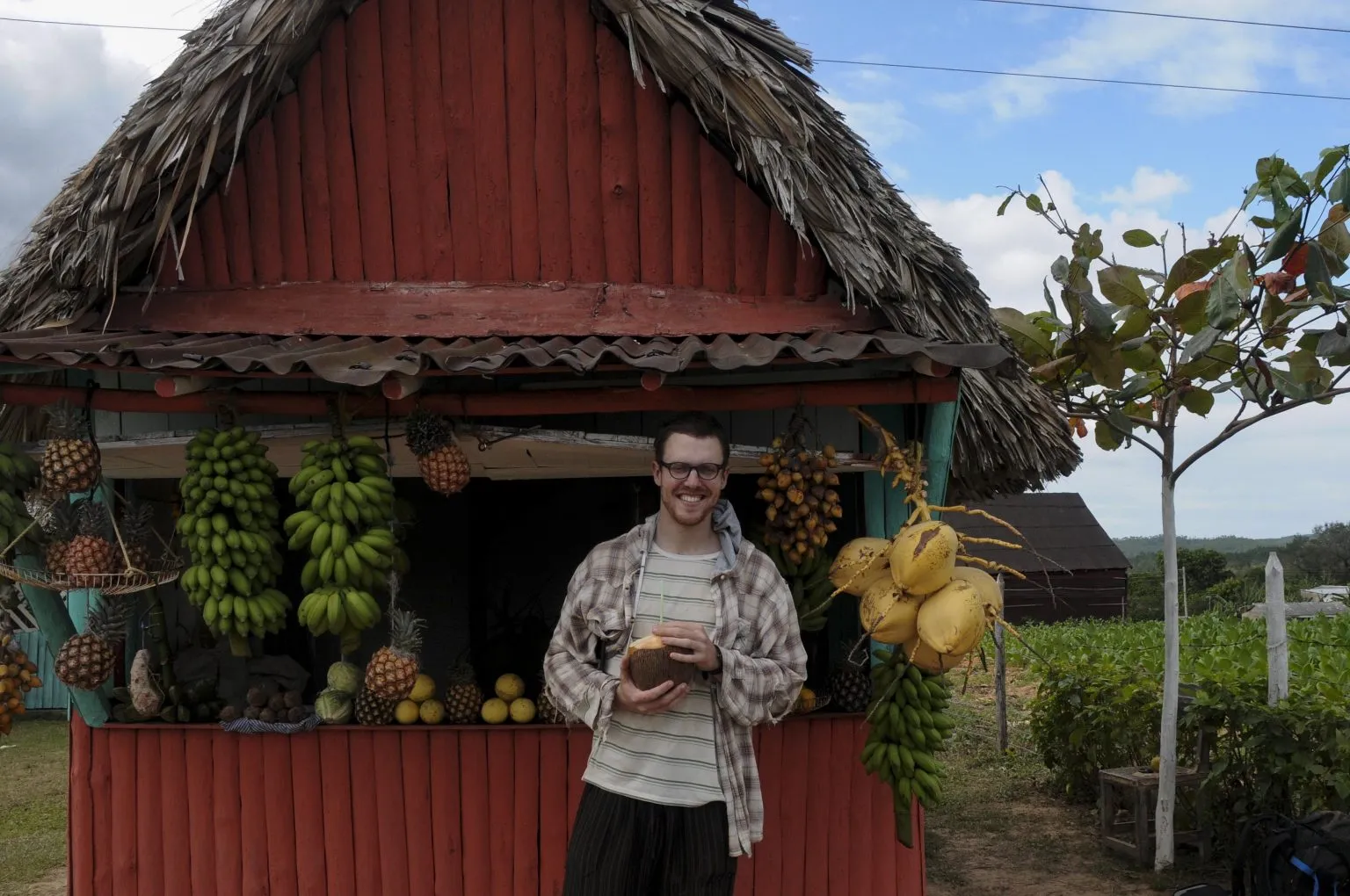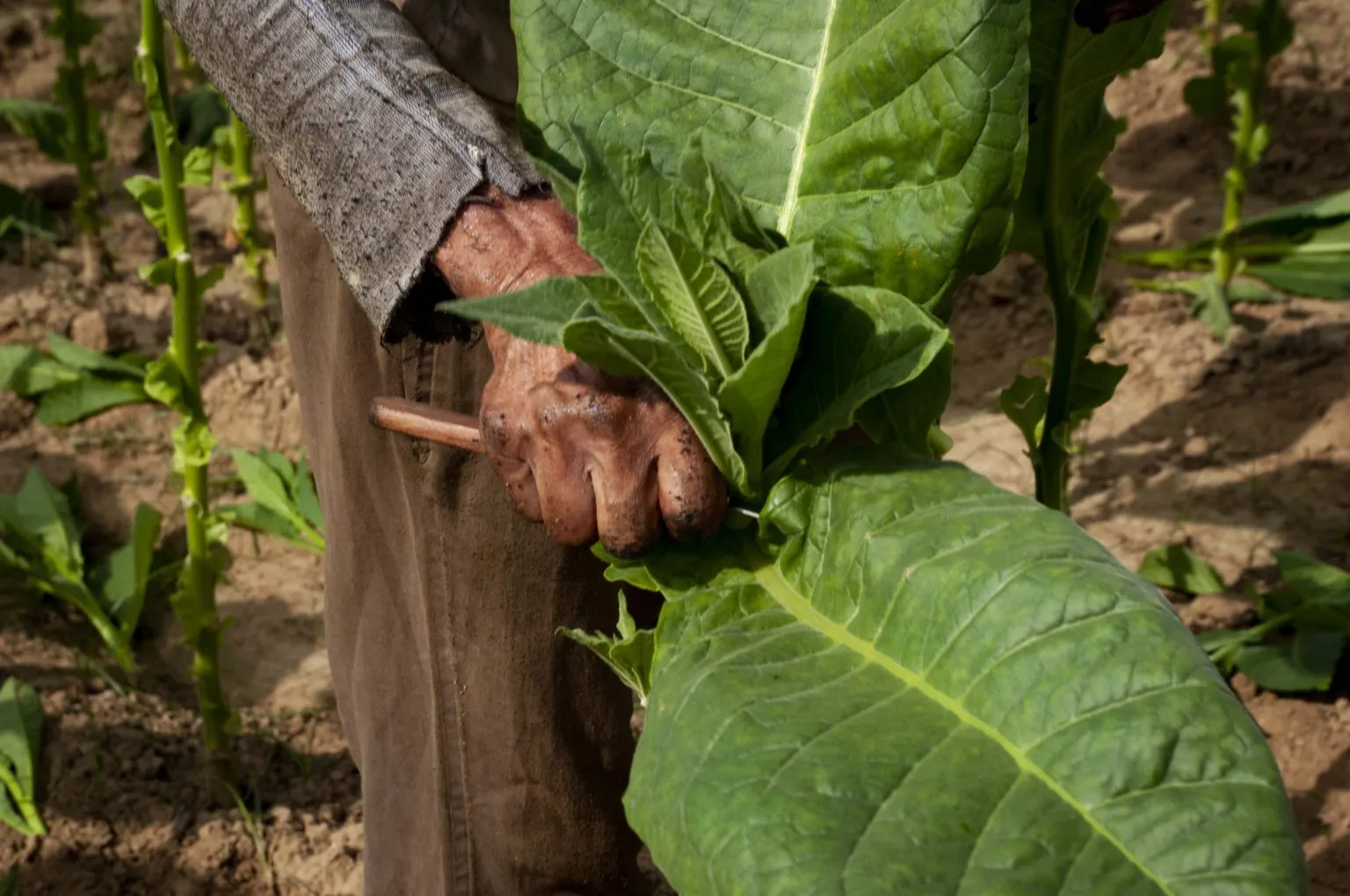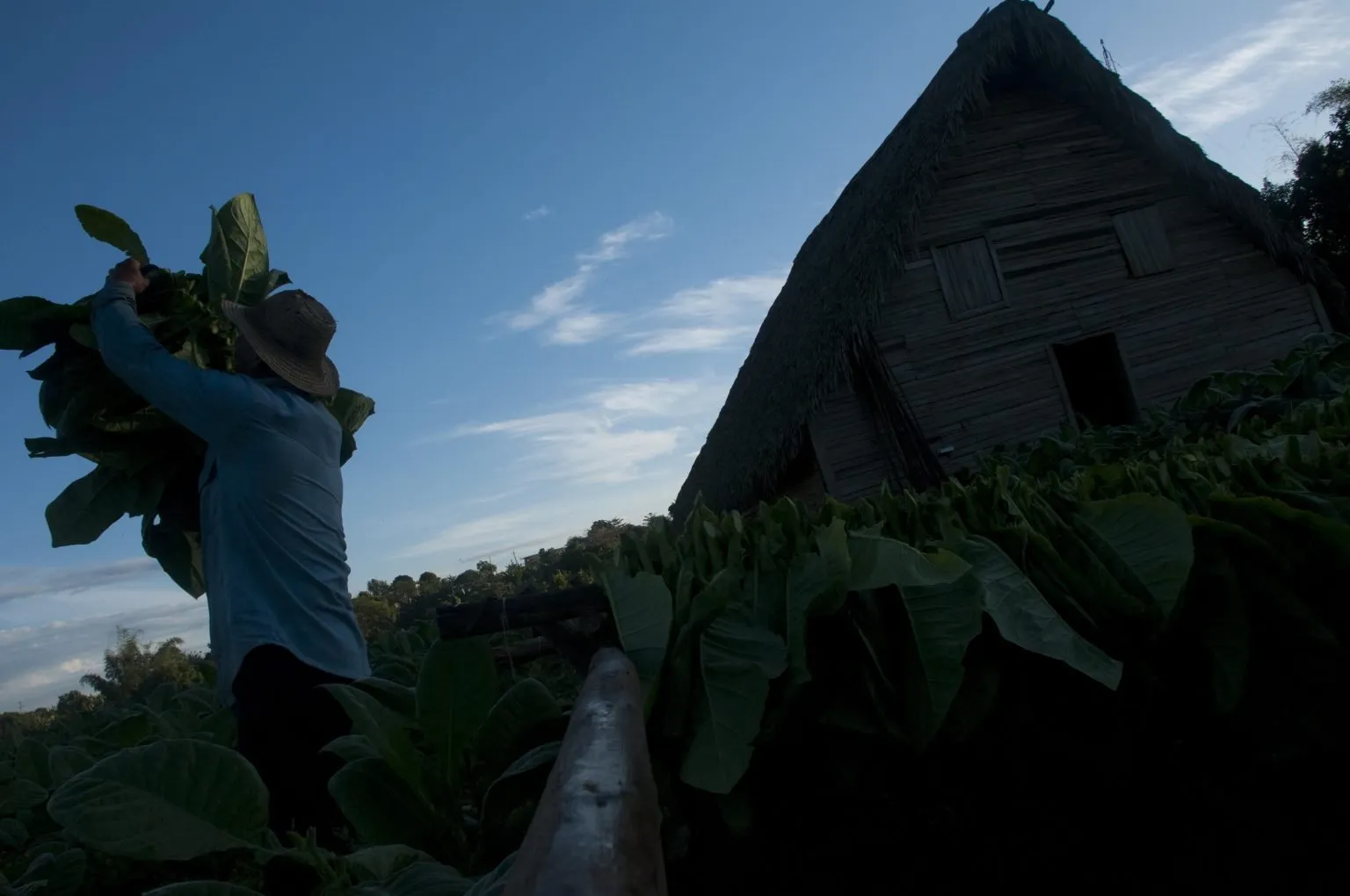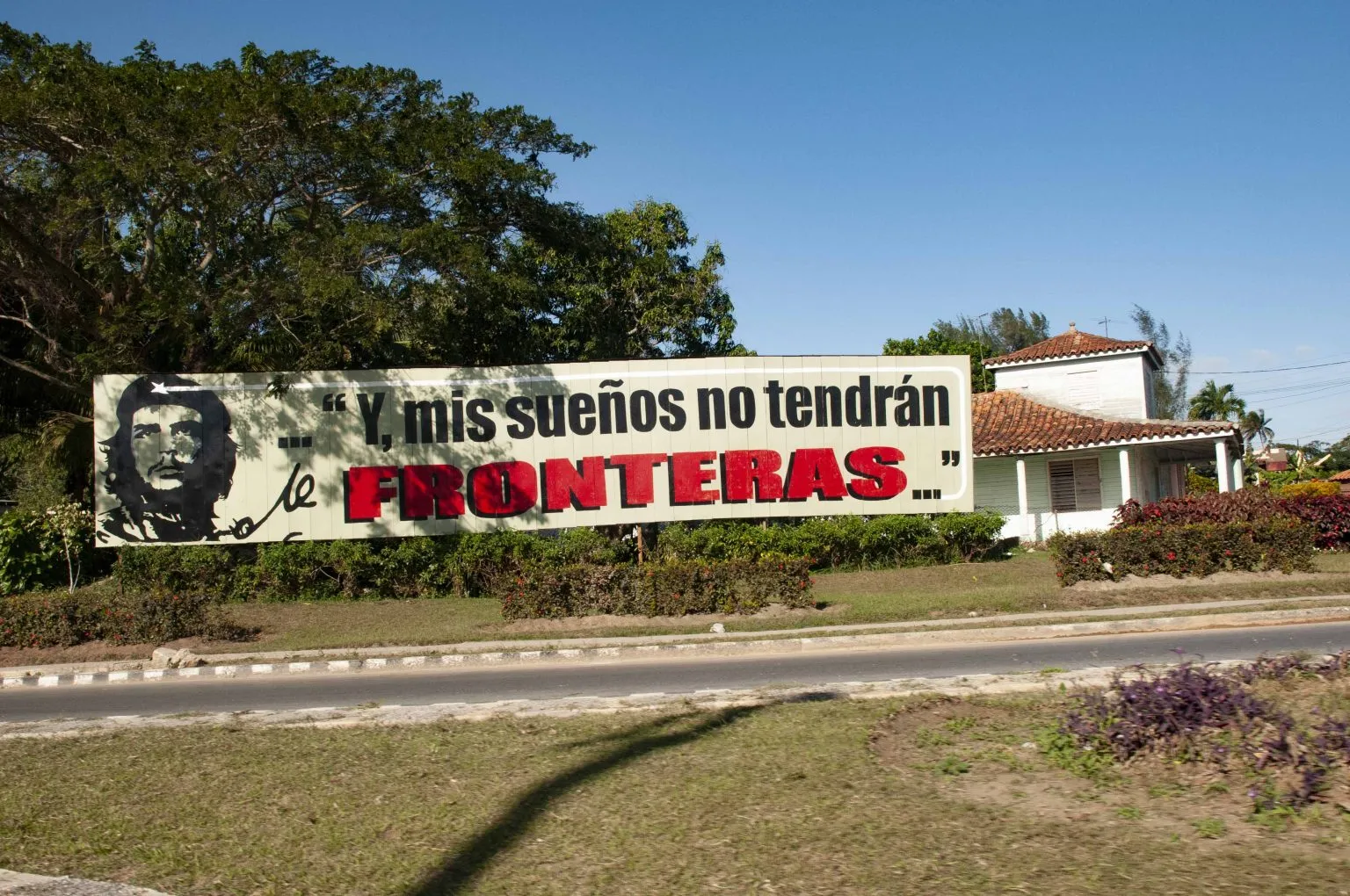Guajiro picking tobacco leaves in Valle de Viñales. Photo by Henrique G. Hedler
Tell your friends that you are going to Cuba, and they will warn you that you are about to visit an authoritarian, dangerous country where they fear Americans like nowhere else on earth. While Cuba is still a communist regime, little do they know that the island is one of Latin America’s safest nations with a rich, unique culture – and best of all, they love foreigners. With no interest in visiting Cuba’s tourist destinations, staying in fancy resorts, or going on private tours, I decided to explore the country in style – traveling on foot.
In this story, I will share a page from my travel diary with you: a day in Pinar del Río, Cuba’s tobacco region.
Knock-knock: The door sound was just a reminder that it was time to wake up. I scrambled out of my sleeping bag, packed my camera, and sauntered outside the room. Not too shabby, I spent the night at a public school right outside of Viñales, a farming town in Pinar del Río, western Cuba. The guard, a tall man with a shaggy beard, was kind enough to let me sleep in one of the empty classrooms. By law, foreigners should only stay in houses or hotels assigned by the government, but with my $10-a-day budget and being broke as a joke, I relied on people’s generosity for a place to sleep. Cubans are known for their hospitality, rightly so.
Breakfast was bread, butter, and a cup of coffee, and then I hit the road. As I walked outside of town, the crumbling buildings faded away, giving way to one of the most scenic views I have ever experienced: rugged cliffs, bright blue sky, and the occasional working cows in the fields. For a good reason, Cuba is well renowned for its nature.
My first stop was a tobacco farm in the outskirts of Viñales. In fits and starts, I introduced myself to the guajiro (farmer) in Spanish and asked for permission to see his farm – it was the peak of the tobacco harvesting season, so there were many things to see. He welcomed me with handshakes and a smile. Juan was curing his leaves in heavy stacks inside the barn, where they hung them for several weeks. Tobacco growing is hard work and a time-consuming process- the leaves are harvested, cured, fermented, and finally used to make the almighty Cuban cigar.
Born and bred in Cuba, Juan has an intriguing life story that holds a special place in my heart. His brother died in the civil war in Angola, and his daughter was attending medical school. Cuba is perhaps one of the only countries where a guajiro’s daughter has the opportunity to learn, study, and eventually become a doctor. Here education is not a privilege but a right – and so it should be.
While he worked, we spoke about Cuban politics and history. He said that in the 1970s, the economy “was doing very well” due to the subsidies from the Soviet Union. Today, however, Cuba’s economic struggles and the shortage of meat, toothpaste, and other essential goods are widespread in rural areas. A farmworker like Juan earns about $25/month. Despite the challenges, he was optimistic about the future and always put a smile on his face.
I wanted to stay all day chatting away, but I had a long road ahead of me – roughly 25 kilometers to walk on that day.



The banners with images of Fidel and signs of “Patria o Muerte” are ubiquitous on the roadside as a reminder that the spirit of the Cold War is still alive. Ultimately, what caught my eyes was the spirit of generosity, openness, and warmth of the Cuban people. It was not uncommon for home dwellers to invite me to their houses as I walked by. The idea of having outsiders at home was appealing, but they were also genuinely interested in offering water, food, or whatever they had to share. I contributed, giving them clothes and other small basic items that I carried in my backpack. Puzzled about my travel plans, the locals almost always asked the same question “Why are you walking across our country?”
Traveling on foot might sound strange, or maybe even revolutionary, but this way, I had the opportunity to see Cuba through the eyes of its people. Fidel Castro once said that foreigners “don’t understand that our country is not just Cuba; our country is also humanity.” His words inspired millions, and with that in mind, I kept on walking.
